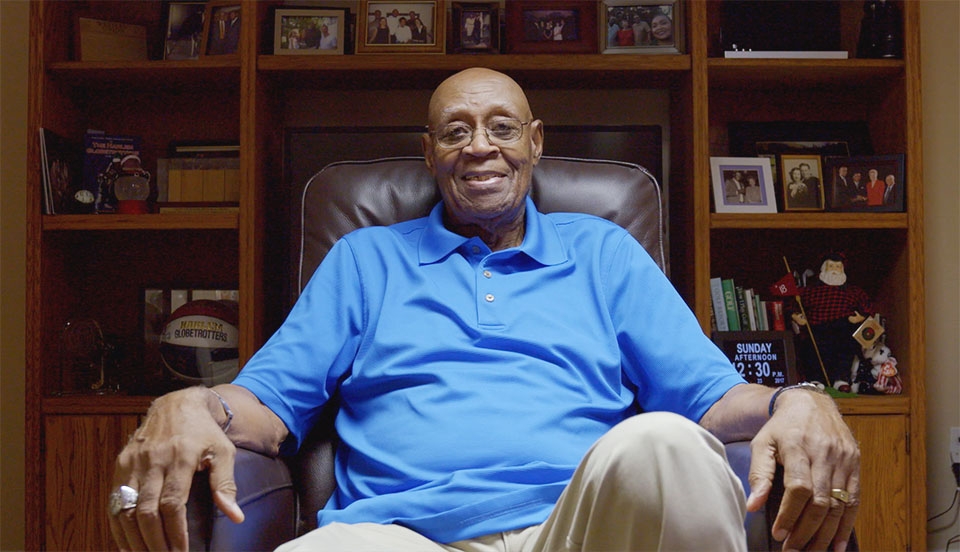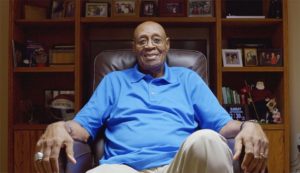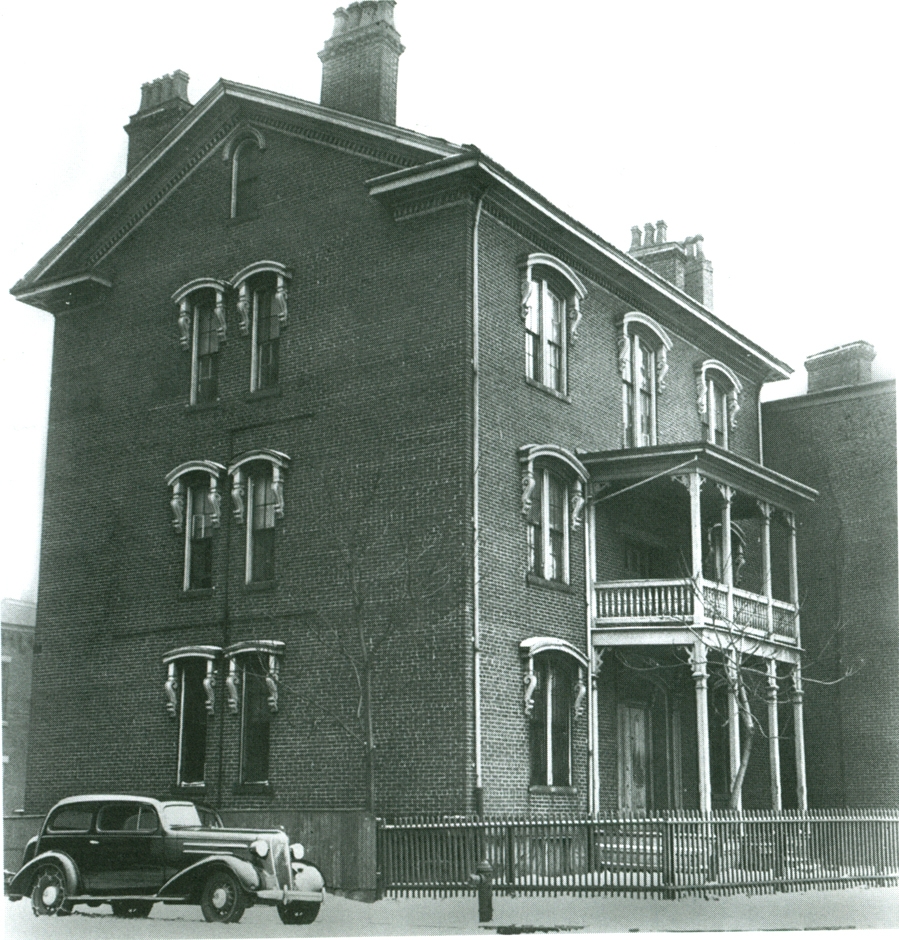
Jim Tucker played for the Duquesne Dukes basketball team from 1951 to 1954 before continuing onto his career in the NBA. The newly released film focuses on Tucker’s life as an athlete and his current life living with Alzheimer’s.

Jim Tucker played for the Duquesne Dukes basketball team from 1951 to 1954 before continuing onto his career in the NBA. The newly released film focuses on Tucker’s life as an athlete and his current life living with Alzheimer’s.
Raymond Arke | Editor-in-Chief
09/20/2018
A new short documentary celebrates the historic and groundbreaking accomplishments of a former Duquesne Dukes basketball player. The film, Let ‘Em Know You’re There, looks at the life of Jim Tucker, who played at Duquesne from 1951 to 1954, his NBA career and his current life with Alzheimer’s disease.
The film, a collaboration between Readily Apparent Media, an Austin, Texas-based production company, and the Onondaga Historical Association in New York, details Tucker’s three seasons with the NBA’s Syracuse Nationals, now the Philadelphia 76ers. It is Readily Apparent Media’s first project.
“For our first project, we wanted it to be something personal. I grew up with Jim’s grandson, Bernie,” said Field Humphrey, the film’s director. “Growing up, he was telling me about all the things his grandfather did.”
Humphrey, who got his start working for Anthony Bourdain’s production company Zero Point Zero, said that Tucker’s on-the-court feats — from helping integrate the NBA to recording the fastest triple-double in NBA history, a record that stood until February 2018 — interested him.
“[I was] really blown away by all he did,” Humphrey said.
Beyond that, Humphrey wanted to document Tucker and his wife, Jane, in their current day-to-day life coping with the effects of Alzheimer’s.
“[His wife] shows him photos every day to help him remember and keep his energy fresh,” Humphrey explained. “His perseverance is unbelievable. He has such a positive attitude — courageous and funny.”
He also hoped viewers would take something away from the movie about the disease.
“I just learned a lot about Alzheimer’s … I want to connect communities with the resources available,” he said. “People have come up to us to tell us how they’ve been impacted [by the disease].”
Being the first production for the company, Humphrey said the film was a lot of work for his “skeleton crew,” which consisted of himself and his two business partners, Ben Altenberg and Patrick Newman.
“We drove from Austin to Jacksonville for our first shoot. It was 16 to 18 hours straight through,” he said. “We’ve been all over, really grinded to make it all happen.”
Humphrey and his team partnered with the Onondaga Historical Association to make the film. The association is located in Onondaga County, New York, home of Syracuse. This made them “kind of the go-to for local history,” Gregg Tripoli, executive director, said.
Tripoli said the association initially started as a fiscal partner, but the relationship grew into something more. The documentary crew had access to a variety of archival material about Tucker and the Nationals, including “crazy 16 millimeter footage. NBA footage that people probably haven’t seen in half a century,” Humphrey said.
Tripoli said that the Syracuse Nationals were a groundbreaking squad in their day, noting how the squad was at a “confluence of history.”
“[The team] was an early diversifier as far as race. Two of the first four African American players played for Syracuse, the first two African American players on a championship team,” he said.
The Nationals were also the team that developed the 24 second shot clock, which is still used in basketball today. Before it’s invention, the game was a “slug fest,” according to Tripoli.
“Jim was essentially a bench player, too fast for the game. The game was slow. The shot clock sped up the game considerably, up to his level,” he said.
The invention of the shot clock also contributed to Tucker’s recently-broken record of the fastest triple-double. A triple-double is when a player achieves a double digit amount in any of the three categories: points, total rebounds, steals, assists and blocks. Tucker scored 12 points, 12 assists and 10 steals in 17 minutes back in 1955, according to syracuse.com.
Tripoli said that the documentary follows a “tremendous human interest story.” He explained that after winning the NBA Championship, Tucker went back to his apartment with his winner’s check and placed it on a dresser. The apartment building caught on fire, and when Tucker realized he left his check behind, he ran back in to get it. On his way back out, he came across a toddler left behind and carried the child out of the flames, saving her life.
Now, many of his accomplishments are fading away from himself.
“The documentary goes beyond typical sports fare. It’s about what’s important in life, what you remember,” Tripoli said. “He’s at the point where he doesn’t remember winning the championship. He doesn’t remember the ring ceremony. He doesn’t remember the triple-double. But, he remembers saving the little girl.”
The documentary had its broadcast television premiere on WQED, Pittsburgh’s PBS station, on Sept. 12. In October, it will appear on stations in Syracuse and Denver.


